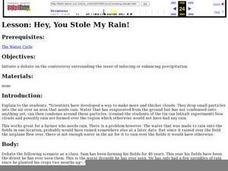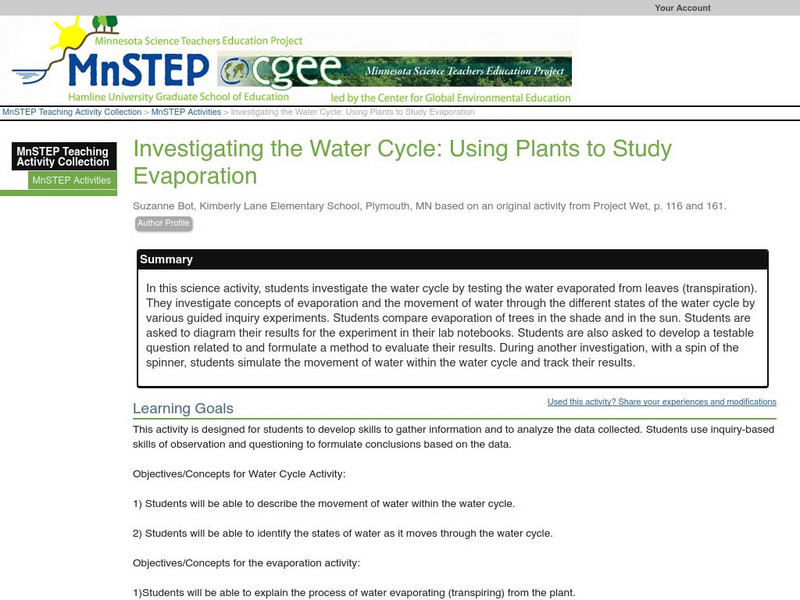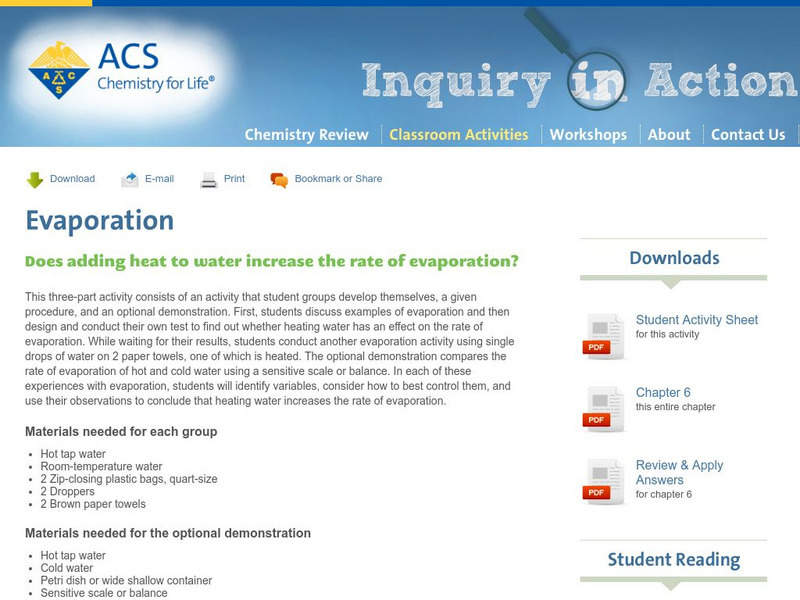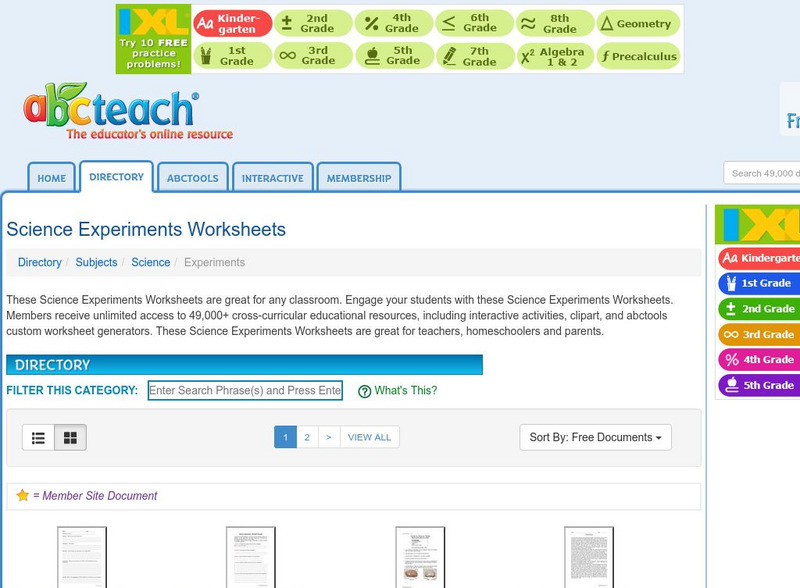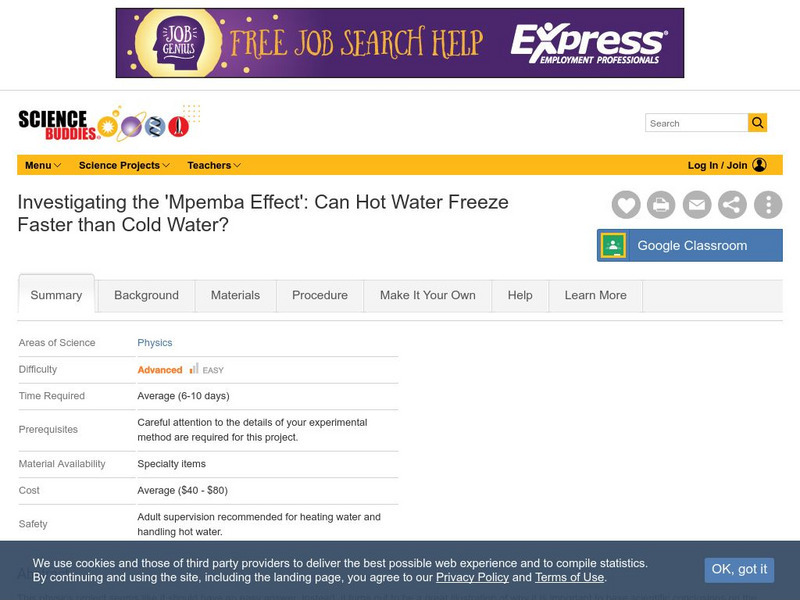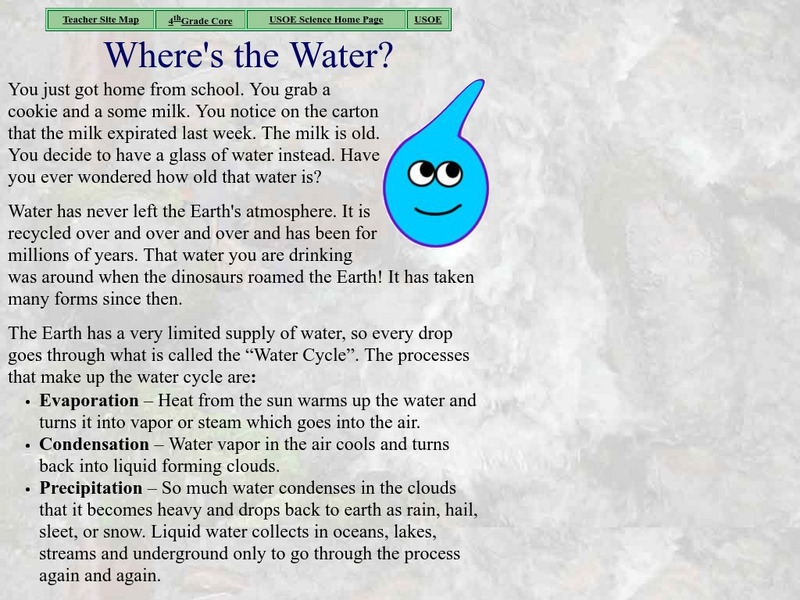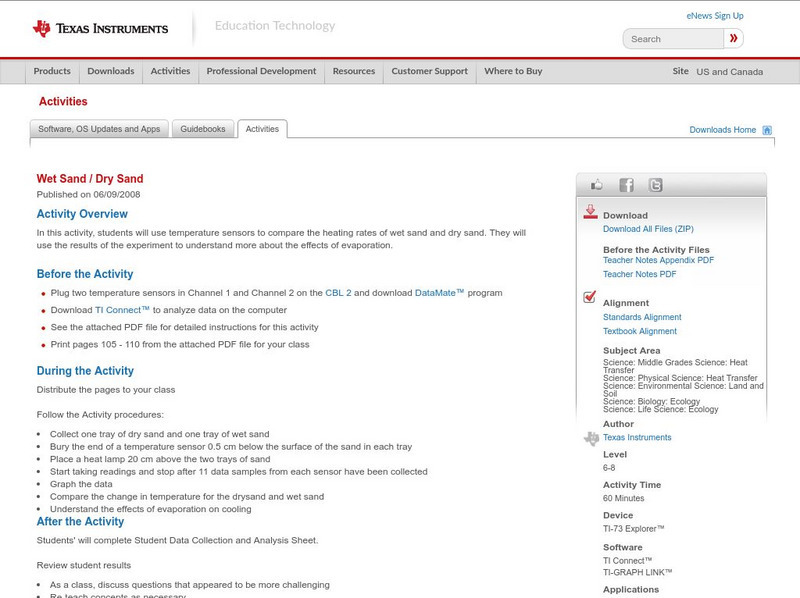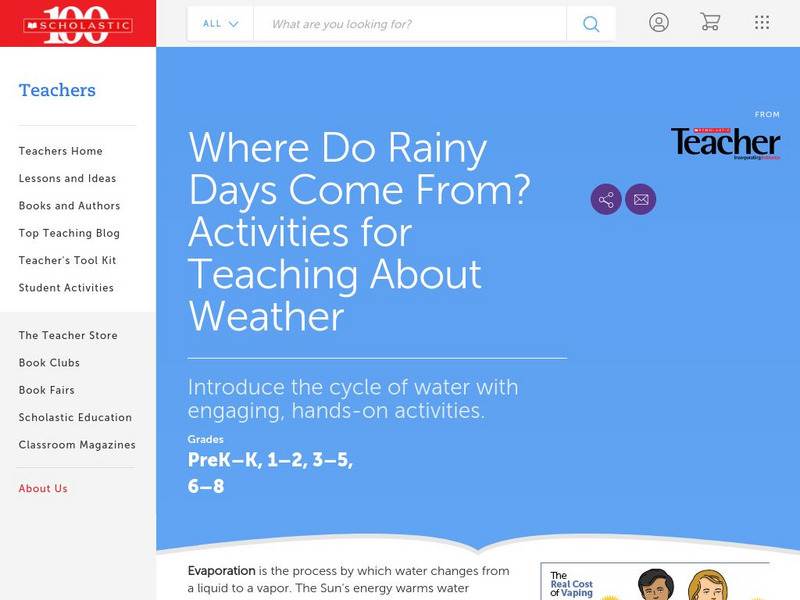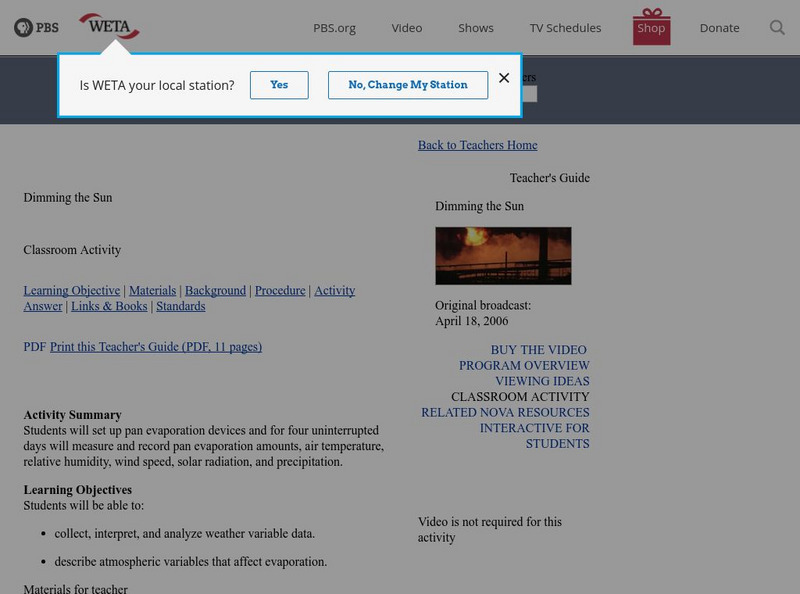Curated OER
Hey, You Stole My Rain!
Learners review various scenarios in regards to the water cycle to determine what the best solution is to the problem. Students write their opinions on the controversies.
Curated OER
Word Unscramble Book "Snowflake Bentley"
In this vocabulary unscramble worksheet, students unscramble 24 words. These are related to the photographer Wilson Bentley. There is no word bank.
Science Education Resource Center at Carleton College
Serc: Investigating the Water Cycle: Evaporation
In this water cycle activity, students investigate the evaporation process by participating in an outdoor evaporation experiment held on the school grounds. Students will determine where evaporation takes place the fastest and how nature...
Science Education Resource Center at Carleton College
Serc: Investigating the Water Cycle: Using Plants to Study Evaporation
In this science activity, students investigate the water cycle by testing the water evaporated from leaves (transpiration). They investigate concepts of evaporation and the movement of water through the different states of the water...
American Chemical Society
Inquiry in Action: Evaporation
A lab experiment where students try to increase the rate of evaporation by adding heat to the water. Students will experience the process the evaporation with this activity.
American Chemical Society
Middle School Chemistry: Changing State: Evaporation
Students build a model of a water molecule and design an experiment to see if adding energy affects the rate of evaporation.
abcteach
Abcteach: Experiments
[Free Registration/Login Required] Elementary students learning to do experiments will be able to use these ready-made worksheets for gathering data on evaporation, melting ice and others.
Science Buddies
Science Buddies: Investigate Mpemba Effect Can Hot Water Freeze Faster Than Cold
This physics project seems like it should have an easy answer. Instead, it turns out to be a great illustration of why it is important to base scientific conclusions on the outcome of controlled experiments. Things don't always turn out...
Center of Science and Industry
Cosi Columbus: Clues About Clouds
Science experiment that simulates how clouds are formed. Includes full list of materials, procedures, and scientific explanation of what must happen in the atmosphere for cloud formation to occur.
Science Buddies
Science Buddies: Weathering the Windchill: How Does Wind Speed Affect Objects?
With this science fair project measure the effect of wind speed on how quickly an object cools. The Science Buddies project ideas are set up consistently beginning with an abstract, objective, and introduction, followed by a section on...
Science Buddies
Science Buddies: What's the Fastest Way to Cool a Soda?
When you are craving an ice cold drink of soda, the last thing you want is to be stuck with a bunch of soda cans at room temperature. This fun science experiment sends you on a discovery to find the fastest way to cool soda with...
Utah State Office of Education
Utah Science: Where's the Water?
Discover the ins and outs of the water cycle through this collection of experiments and activities.
Science Fun for Everyone
Science Fun: Olympic Medals
Create your own Olympic medal out of clay with the help of an adult. Watch as your design hardens over time as the water in the clay evaporates.
PBS
Pbs Learning Media: Biome in a Baggie
This ZOOMSci video segment shows how to create self-contained environments and explore how plants grow under different conditions. [3:24]
Concord Consortium
Concord Consortium: Molecular Workbench Showcase: Chemistry, Vapor Pressure
A series of virtual experiments that show students the power and importance of evaporation.
Texas Instruments
Texas Instruments: Wet Sand / Dry Sand
In this activity, Students can use temperature sensors to compare the heating rates of wet sand and dry sand. They will use the results of the experiment to understand more about the effects of evaporation.
Science Education Resource Center at Carleton College
Serc: Investigating How Do Clouds Form? What Are the Different Types of Clouds?
In this investigation, students will observe and learn about the different types of clouds and be able to explain in their own words how clouds are formed. They will also observe an experiment illustrating how clouds form.
Scholastic
Scholastic: Where Do Rainy Days Come From?
Find out more about rainy days when you check out this resource, which features hands-on interactive activities, experiments, fun facts, and more.
Alabama Learning Exchange
Alex: The Water Cycle
This is a hands applied lesson plan to help students experience the water cycle on a smaller scale. Because of the hands-on nature of the lesson plan, it works well to help students with a language barrier understand complicated vocabulary.
Science Buddies
Science Buddies: Cumulus Maximus: Make Your Own Cloud!
In this experiment, you'll make your own cloud in a jar, and get to test the conditions that are required to make a cloud form.
PBS
Pbs Teachers:dimming the Sun
Conduct an experiment and investigate how air temperature, relative humidity, wind speed, solar radiation and precipitation affect evaporation. Graph the data collected during the experiment.
Bill Nye
Bill Nye: Sock It to Me
Try this at-home science experiment to learn how warm water (sweat) makes us feel cooler.
Other
Teaching Ideas for Primary Teachers: Science Ideas
A great resource to discover fun new activities to use in your classroom. Activities are age-appropriate, and span several science topics.



